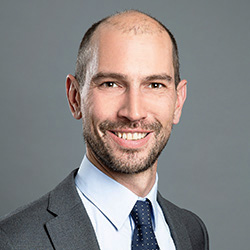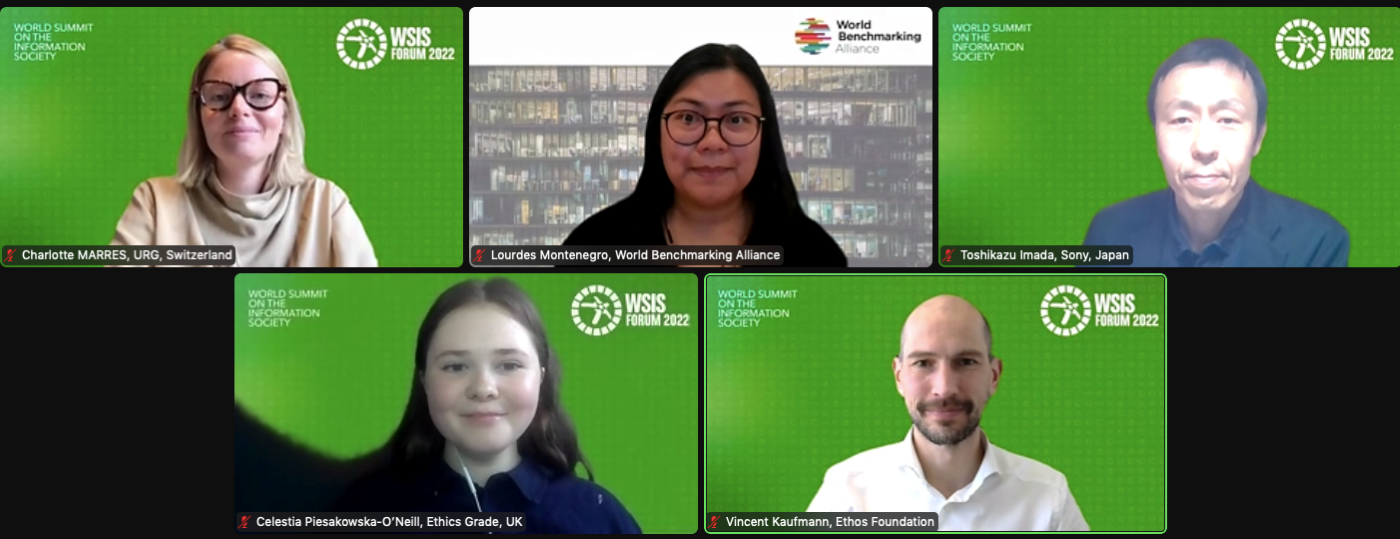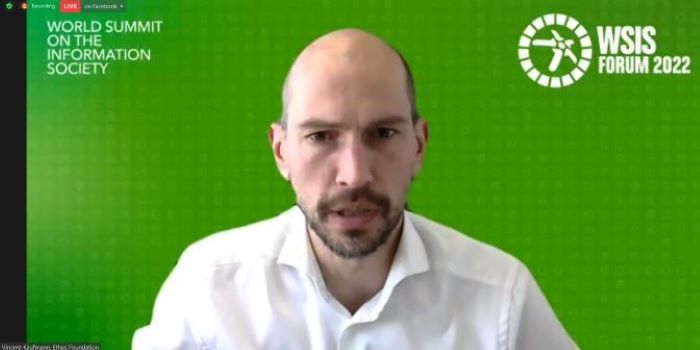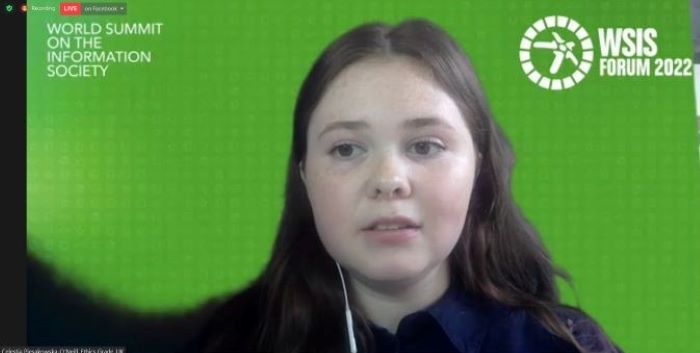Multi-stakeholder collaboration for responsible and ethical Artificial Intelligence
World Benchmarking Alliance
Session 237
This session will discuss multi-stakeholder approaches needed to ensure commitment to and implementation of ethical AI principles by the technology companies. Panellists drawn from investor groups, civil society and the private sector will also discuss the importance of ethical AI principles and their implementation.

Charlotte Marres is a Senior Policy Analyst at the Universal Rights Group, a think tank focused on human rights policy with offices in Geneva, New York and Bogota. Charlotte has particular expertise in gender-related issues, having served as project lead on various URG projects related to questions of gender (including on religious-based reservations to CEDAW, and on femicide), national implementation of human rights recommendations (with a specific focus on the role of NMIRFs in this regard), and the role of international development actors both bilateral development agencies and multilateral development actors in supporting human rights implementation at the national and local levels. In recent years she has also been leading the work on the URG in the area of human rights and new and emerging technologies, with a specific focus on the intersection between democracy, human rights and digital technologies, as well as developing a human rights based approach to new and emerging technologies. Before joining the URG she served as a human rights expert at the Permanent Mission of the United Kingdom to the UN in Geneva.

Lourdes leads the digital sector work of the World Benchmarking Alliance, including strategic oversight over the publication of the Digital Inclusion Benchmark which ranks and scores 200 of the world’s most influential technology companies. She also leads engagement with global stakeholders and is WBA’s main spokesperson on digital sector topics. Before joining WBA, she worked at the International Telecommunication Union (ITU), where she coordinated a global expert group on ICT statistics, organized international meetings, trained developing country regulators, and contributed to ITU’s statistical publications. Lourdes is an economist from the Philippines with more than a decade of experience delivering data-driven and policy-oriented projects for industry clients, UN agencies and governments. She has authored papers on technology policy as well as on environmental economics.

Vincent Kaufmann (1980) has been the CEO of Ethos Foundation and of Ethos Services since June 2015. Since October 2020, he is also Head Proxy Voting, Swiss ESG and Engagement ad interim. Vincent Kaufmann joined Ethos in 2004 as a Corporate Governance Analyst, later becoming a Senior and Deputy Head Corporate Governance. He has been member of Ethos Services’ management in charge of investment since 2011 and deputy CEO since 2013.
Since 2014, he has been a member of the board of directors of the proxy voting consultant Proxinvest (Paris) and, since June 2019, of the board of Swiss Sustainable Finance.
Vincent Kaufmann, a Swiss certified Expert for Accounting and Controlling since 2009, holds a Master’s degree in Business Economics of the University of Geneva (2004).

Celestia Piesakowska-O’Neill, based in London, is a research analyst at EthicsGrade, looking at how companies are responding to a growing emphasis on Corporate Digital Responsibility and the ethical considerations involved in the digitalisation process.
She has worked on expanding our benchmarking model, providing insights into how companies are aligning to stakeholder values and reflecting ESG efforts. Her work has focused on the detailed analysis of issues we’re facing in the digital transition of economy and society.
She studied Sustainable Development MA at the University of Edinburgh, focusing on food insecurity and the ethical challenges we face in achieving sustainability targets. In addition to my work in benchmarking, she has worked with a number of local charities. These roles emphasised the crucial impacts organisations and governing bodies have on society, and how quantifying progress and change can safeguard community outcomes.

Toshikazu Imada is the Senior Manager of AI Ethics Office, Sony Group Corporation, which is designed to be a central body for providing subject matter expertise on AI ethics to all of Sony Group, and responsible for implementing the Sony Group AI Ethics Guidelines, serving as the Secretariat for the AI Ethics Committee.
He leads the efforts on the launch and operation of the AI ethics assessment process as part of the Quality Management System for electronics products. In addition, working with stakeholders across Sony Group to provide advice on addressing their AI ethics challenges. Through these efforts, continuously trying to develop more guidance, training, and tools to help business units and the other internal organizations diagnose and mitigate AI ethics issues.
Toshikazu has years of experience as compliance and governance at the corporate program accelerating innovation and technology including artificial intelligence.
He previously served in the corporate planning and CEO Office supporting top management in the Headquarters on various corporate activities.
He holds a master's degree with Business Administration in International Business Strategy from the Graduate School of International Corporate Strategy, Hitotsubashi University, and a bachelor's degree in sociology from Waseda University in Tokyo, Japan. He is the member of Avatar Social Ethics Design Consortium.
-
 C10. Ethical dimensions of the Information Society
C10. Ethical dimensions of the Information Society
-
 Goal 16: Promote just, peaceful and inclusive societies
Goal 16: Promote just, peaceful and inclusive societies
-
 Goal 17: Revitalize the global partnership for sustainable development
Goal 17: Revitalize the global partnership for sustainable development





